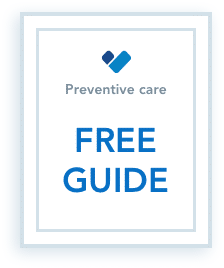Are there health insurance benefits for domestic partners?
As marriage rates in the United States have fallen, cohabitation rates have increased. In 2016, more than 18 million adults lived with an unmarried partner, a 29 percent increase from 2007. While some couples are simply not ready to get married yet, others have chosen to not get married for a variety of reasons. Being in a domestic partnership allows you to escape certain responsibilities of marriage, but it also prevents you from benefiting from certain rights that come with tying the knot. One grey area is health insurance benefits for domestic partners. If you’re living with a domestic partner, read on to learn how you may be able to get domestic partner health insurance benefits and when it may not make sense.
What defines a domestic partnership
Domestic partnership doesn’t just pertain to same-sex couples. Rather, a domestic partnership is where two unmarried and unrelated people cohabitate and share a domestic life. And they are not married or joined by a civil union. The two people can be of the same or opposite sex.
There is no federal definition or recognition of domestic partnerships, nor guidelines for legal rights and benefits. So whether you’re eligible to be categorized as being in a domestic partnership depends on where you live. In the world of healthcare, this categorization and the rights it extends could dictate whether you get health insurance benefits and legal rights such as hospital visitation.
Which states recognize domestic partnerships?
Not only is there not a federal definition of domestic partnership, there isn’t always consistent recognition within a state. Some states recognize domestic partnerships and maintain registries. While in other states, domestic partnerships are only recognized in certain cities and counties. What defines a domestic partnership under local laws can also differ. For example, in California, a legally registered domestic partnership is available to:
- All same-sex couples who are at least 18 years old.
- As well as opposite-sex couples in which at least one partner is 62 years of age or older.
This directory from the Human Rights Campaign is a helpful place to start, though the only way to confirm whether your locality recognizes domestic partnerships is to contact the local government department that issues marriage licenses. Make sure to also ask about what that recognition means in terms of your legal rights.
What is domestic partner health insurance?
Domestic partner health insurance is when health insurance benefits are extended to a domestic partner, much like they often are to married spouses. Generally, this benefit will also extend to the domestic partner’s children.
Note that private employers do not have to offer health insurance to any employees. But if they do, they must follow federal, state, and local laws pertaining to whether domestic partners are eligible for health insurance benefits. In most cases, you’ll need to prove your domestic partnership to gain eligibility. This could be via registration in the local domestic partnership registry, an affidavit certifying your relationship, or other documentation. Insurance companies typically want you and your domestic partner to meet this criteria:
- You have cohabited for 6-12 months (depending on the company’s requirements) and intend to continue doing so.
- That neither of you is married or in a domestic partnership with anyone else.
- That you are unrelated by blood.
- And that you are financially interdependent.
Is my employer required to offer domestic partner health insurance?
No, your employer does not have to offer domestic partner health insurance. Even if it offers health insurance benefits to married spouses. The exception to this is in places where it is against the law not to.
In the past, employers who did offer domestic partner insurance benefits often did it for the sake of employees in same-sex relationships. After the U.S. Supreme Court legalized same-sex marriage across the country, some insurance companies and employers who previously offered it decided to cut domestic partner health insurance benefits. Large employers with more than 10,000 employees were the most likely to continue domestic partner benefits.
You can always ask your employer to add domestic partners to their group health insurance plan, however. Studies have shown that the costs of offering domestic partner health insurance are negligible for most employers.
What is the domestic partner health insurance tax?
Whereas health insurance benefits provided to a married spouse are just benefits, the same benefits provided to a domestic partner are considered taxable income for the employee.
If your employer pays for any part of your domestic partner’s health insurance premium, then that coverage is taxable and must be reported on your W-2 as imputed income. This amount is the fair market value of what they contributed minus any after-tax contributions made by you, the employee. Because of this, it is valuable to calculate the potential tax burden and compare it with the cost of buying separate coverage via an Affordable Care Act health insurance Marketplace. The cost could be significantly lower, especially if your partner qualifies for a subsidy.
It is possible for this employer-paid coverage to be tax-free. On the federal level, an exception is made if your domestic partner:
- Receives at least 50% of their financial support from you.
- Lives in the same home as you.
- And is a citizen, national, or legal resident of the United States, Canada, or Mexico.
They also cannot be a qualifying child of any U.S. taxpayer. This exception also applies in most states. There are some states that do not tax domestic partner health insurance benefits at all, however.
What are other options to get health insurance benefits for domestic partners?
While same-sex marriage is now legal in the United States, more and more people are also in unmarried, cohabiting relationships. If you are in domestic partnership and lacking the associated health insurance benefits, you can explore family health insurance plans available in the Marketplace, where some plans will offer domestic partnership health insurance benefits. The official recommendation from the government, however, is to include an unmarried domestic partner in a family plan only if you have a child together or if you’ll be claiming your domestic partner as a tax dependent. In some cases, it may be cheaper for both of you to enroll in individual Marketplace plans. Especially if one or both of you qualify for subsidies.
You can also explore off-Marketplace private insurance options, but be aware that these plans do not have to offer all the benefits afforded you by the Affordable Care Act.














$0 Premium Health Insurance
Thank you